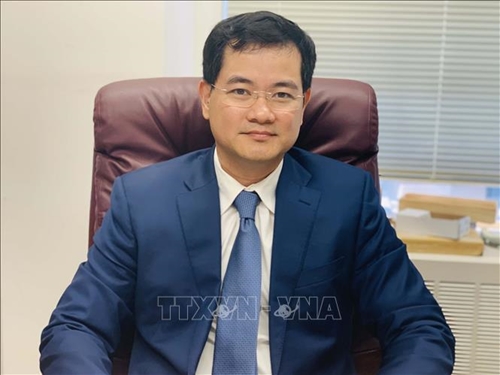Their economic relations have expanded in scale since the two established diplomatic ties, he told Vietnam News Agency correspondents in the U.S.
    |
 |
|
Minister Counsellor in charge of trade affairs Bui Huy Son |
Economic and trade cooperation has made important contributions to and remains one of the important pillars of Vietnam-U.S. relations.
According to U.S. figures, two-way trade saw a 333-fold increase in the 25-year period, rising from 233.4 million USD in 1994 to 77.5 billion USD in 2019.
Cooperation has also seen positive changes in quality, he added, as the structure of Vietnam’s exports to the U.S. has been diversified, with the presence of industrial and processing products such as electronic components, iron and steel, rubber, and home furniture. Vietnam has primarily focused on shipping agricultural products, garments and textiles, and footwear to the U.S.
Another important change is that the two countries are stepping up new cooperative fields such as investment, technology research and development (R&D), and services such as transportation, telecommunications, and energy.
According to the Minister Counselor, the two countries still hold great potential to boost cooperation in the time ahead.
Vietnamese businesses can find abundant capital and technologies in the U.S. - the world’s largest import market at more than 2 trillion USD each year.
Vietnam is attractive to U.S. enterprises, meanwhile, thanks to its positive growth, transparent policies, and close links with ASEAN markets and other major markets in the world, Son said.
Given the negative impact of the COVID-19 pandemic, he said both countries are facing major challenges that will have long-term consequences on the business activities of every enterprise and the global economy.
He suggested the two sides focus on tapping each other’s advantages, expand trade activities, encourage investment, boost production chain links, and develop service business in such fields of potential as tourism, aviation, education, and R&D.
The two governments should maintain their effective policy dialogues and build favorable business climates to develop harmonious, sustainable, and mutually-beneficial economic and trade relations, he added.
Source: VNA